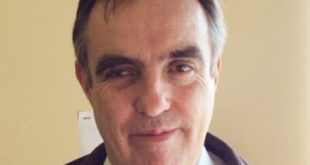The racing community were shocked and saddened yesterday to learn just days before the Vodacom Durban July of the death of Jack Ramsay, a doyen of racing journalism and passionate about the sport to the end.
Although Ramsay was the ripe age of 94 he was still active. He was diagnosed with cancer a couple of years ago but up until then used to cycle and swim virtually every day. Even after the diagnosis he was a regular at the races and would watch from the old press rooms. He wrote reports from there for Sapa at least up until the age of 90.
Ramsay, born in Durban in 1921, watched his first July in 1936 and the only ones he missed since were when serving in the war. He had an acute knowledge and was thorough in his pre-big race analyses. This can be summed up by his coverage of the 1972 Cape Guineas as the Racing Editor of The Mercury.
The Natal pair In Full Flight, trained by David Payne, and Sentinel, trained by Joe Joseph, met ten days before the event over 1400m at Kenilworth and In Full Flight only just got up by a short-head. Ramsay travelled down to the Cape and followed the pair’s progress in the final week. He reported in the Mercury of February 3 that of the two Sentinel had made the greater improvement since leaving Natal. Furthermore, Joseph had told him Sentinel had needed the 1400m run when narrowly defeated by In Full Flight.
However, he reported In Full Flight to be moving just as magnificently on the training tracks. He added Payne had told him the horse had improved considerably since that last win, while also pointing out how much courage he had showed to win the race.
Ramsay, wrote that the betting, in which In Full Flight was 5-4 favourite and Sentinel only third favourite at 7-1, was misleading. The astute scribe elaborated by reporting he had not been impressed with the way the second favourite, the Highveld raider Derrymore, had travelled as he had got off the float sweating profusely and had looked a lot lighter than when he had seen him winning the Dingaans.
Having watched the participants working on the Thursday, Ramsay concluded in his Friday article, “On form and on their appearance the race should rest between the two Natal colts In Full Flight and Sentinel and the indications are that if they do dispute the finish there will be very little between them.”
He couldn’t have been more accurate as the pair raced to a thrilling dead-heat the next day.
Ramsay would not hesitate to tip the favourite if he believed it to be worthy. For example, he correctly predicted Igugu would win with a bit in hand in 2011.
The public therefore sat up and took notice if he went against the main stream. For example, Ramsay correctly tipped the relatively unfancied Jamaican Rumba for the 1982 July after quantifying jockey Paddy Wynne’s advice of the horse’s continual improvement in training.
Ramsay could be quite hard hitting and having grown up in a day in which a road crossed the course at a crucial point in the Greyville straight he had little sympathy for latter day protesting jockeys.
He loved tradition but was not bothered by the affect a narrowed track would have on the country’s premier race and simply said, “The July will always be the July.”
Ramsay, as recounted in an article written by journalist Mike Moon, watched his first race meeting from the Scottsville car park at the age of eight. Ramsay’s father used to be in charge of the gatekeepers at Greyville and by 1936 Jack had begun helping count the admission fees.
The following year he backed his first July winner, wagering ten shillings on 40-1 shot Ballyjamesduff, who was the fancy of a navy fleet officer attending a dinner party at the Ramsay home.
In the war he was in the Coastal Command and became skipper of a torpedo boat and was later given command of a corvette.
On returning to Durban he started writing about racing for Britain’s “Sporting Life” and subsequently landed the job of Racing Editor at the “Rand Daily Mail” in Johannesburg. He was on the Mail for two decades, on occasion also covering racing for the “Sunday Times” and the “Sunday Express”. Later, he was appointed the Transvaal racing clubs’ official timekeeper on top of his writing job.
Jack returned to Durban in the mid-1960s as Racing Editor of “The Natal Mercury”, a position he held until his official retirement in 1986, although that was far from being the end of his involvement in racing.
His son Stewart was Racing Editor of the Daily News for decades.
Jack renewed his love of seafaring while Mercury editor, skippering ocean-going craft and taking parties of anglers out from Durban harbour to the deep-water fishing grounds. Then flying caught his interest and he obtained a pilot’s license, bought his own light plane and competed in the State President’s air race.
Jack was a life member of Gold Circle, having been possibly the longest-serving member of the old Durban Turf Club.
He regarded Harold “Tiger” Wright as “probably the best jockey he saw, although also gave special mention to Michael Roberts, and he rated Terrance Millard as the country’s greatest ever trainer. The best ride he saw was Lester Piggot’s win at Scottsville on The Maltster, who lost some 15 lengths at the start.
Secretariat was the greatest horse he saw. He was there to see this legendary horse’s incredible Belmont win.
He rated Illustrador as the greatest July winner he had seen, although his admiration for Mowgli always shone through.
A minutes silence was observed for Jack at yesterday’s Vodacom Durban July final field announcement and draw ceremony. His funeral arrangements have not been finalised yet.
Jack Ramsay and his unlimited enthusiasm for the Sport Of Kings will be sorely missed by all in the industry.
David Thiselton
Remembering Jack Ramsay
PUBLISHED: 22 June 2016







